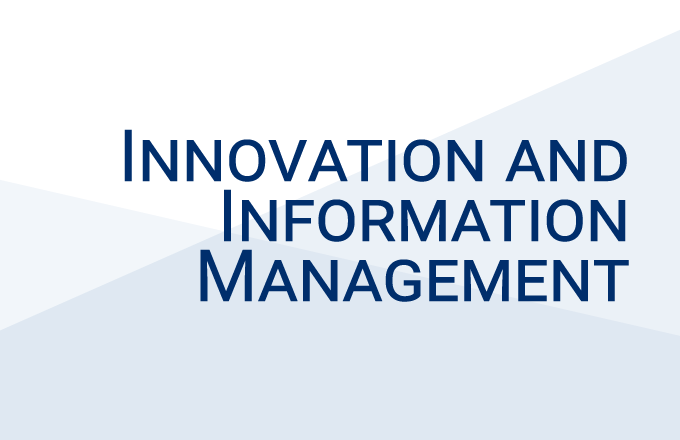Leveraging the Digital Tracing Alert in Virus Fight: The Impact of COVID-19 Cell Broadcast on Population Influx Patterns and Prevention
Mr. Heeseung Lee
Ph.D. Candidate (ABD) in Management Engineering
Korea Advanced Institute of Science and Technology (KAIST)
The abrupt disruption of the COVID-19 pandemic has caused turmoil that transcends every boundary across regions or countries. Due to the high transmissive nature of the virus, effective intervention measures aimed to prevent transmission have become the key to slowing the spread of infection. The core focus of the interventions was to reduce human mobility, and thus, governments enacted strict social distancing policies ranging from stay-at-home orders to travel bans. However, although these non-pharmaceutical interventions have shown to be effective in reducing transmission, they impose a significant drawback of high economic and social costs (Flaxman et al. 2020).
To establish sustainable and effective disaster management and prevention strategies, countries have endorsed digital contact tracing in an attempt to flatten the curve. Contract tracing, which uses an IT artifact to identify the people that a COVID-19 patient contacted, is known to be highly effective in rapidly identifying positive cases to prevent resurgence (WHO 2020). However, the delay in the traditional manual contact-tracing interventions makes it ineffective at controlling the high-transmissive epidemic, such as COVID-19 (Ferretti et al. 2020).
This is where information technology comes into play. Provided mobile device’s temporal and geographical ubiquity (Ghose et al. 2013), mobile devices allow contact tracing and alerts instantaneously, in real-time. The effectiveness of disaster management of COVID-19 showed a high correlation with digital technology usage (Lewis 2020). and among others, South Korea’s IT and mobile pre-eminence has played a significant role in preventing and managing worldwide catastrophes caused by the COVID-19 pandemic (You 2020). For instance, technologies have enabled the country to facilitate case-based and cluster-driven prevention and intervention during global outbreaks. Specifically, Korea is one of the few regions that has capitalized on digital tracing alerts using mobile messaging systems for disaster management, providing real-time COVID-19 information to all citizens in a given district whenever new cases arise (Ting et al. 2020). Specifically, when a new case was confirmed, the government sent detailed information of the COVID-19 patient, including his/her demographic information and the time and places visited.
Against this backdrop, there also have been concerns in regards to the granularity of information disclosures (Park et al. 2020). That is, despite the effectiveness of these innovative digital technologies in managing the pandemic (Yalaman et al. 2021), privacy concerns have arisen regarding how much of the private information should be publicly disclosed(Zastrow 2020).
With these considerations, this study investigates the efficacy of the real-time mobile alert system in controlling instant population movement from infected areas and explores how the amount of private information embedded in the message moderates the effects of digital alerts on public health and safety during the global outbreak. We begin by understanding to what extend digital tracing alerts affect population mobility patterns. Next, we examine how the content characteristics embedded in the digital tracing alert affect population mobility patterns. Lastly, we investigate how the effect of digital tracing alert on population mobility pattern vary across different demographic and administrative district characteristics.
To empirically evaluate the power of IT for transmission-related disaster management, we leverage hourly population mobility data on 25 districts and 424 administrative areas in metropolitan Seoul and 6,523 cell-broadcast grounded messages that were sent in real-time to the public during the pandemic. To demonstrate the comprehensive or informative nature of the alerts, we reproduce one such message here: “COVID-19 patient #10422 (Yangjae, male, 38 years old). Before being diagnosed, patient #10422 visited the Hanaro supermarket in Yangjae township on March 23 from 11:32 p.m. to 12:30 a.m. The patient was accompanied by their spouse, both wearing masks and using their own car for transportation.” From January 1, 2020, to January 31, 2021, we constructed 4,029,696 district-hour level balanced panel data.
We found that the instant messaging of COVID-19 status information induced movement among 1.88% of the infected district’s population to other administrative areas in a given hour and decreased population density by 30.86 individuals per square kilometer. In other words, the real-time messaging system has an immediate positive impact on social distancing, keeping citizens informed concurrently about their neighbors and their immediate spatial environments. However, the degree to which individuals are affected by real-time messaging varies in a heterogeneous fashion, with the effects being more pronounced for young and male individuals than old and female members of the population. This heterogeneity is also partly accounted for by district characteristics with the favorable effects reinforced in localities typified by low residential density and high mobility but mitigated in neighborhoods of high residential density and low mobile mobility. Moreover, the beneficial effects are diversified depending on the context surrounding message transmission. Sending more than three messages within a day has a valid counter-effect (i.e., fatigue effects), while messages sent when the cumulative number of confirmed cases is high have a less positive effect than when the verified cases are low (i.e., desensitization effects).
Interestingly, the benefits of real-time messaging hinged on the inclusion of private information on case confirmation. For instance, the beneficial effects on reducing mobility are amplified amid messaging that includes gender information on confirmed patients. Conversely, the advantages weaken under messages that contain the age or specific resident location of a confirmed case. This result means that the disclosure of specific private information (e.g., age, location) on confirmed patients exerts a limited effect on public safety. Additionally, when a message carries no confirmed patient-related information, the inclusion of detailed locations or specific groups (e.g., foreign entrants, self-quarantined individuals, people who have visited a specific location) generated significant adverse effects. To wit, disaster-description texts associated with particular subgroups could reassure and reduce the social alertness of most individuals who did not belong to a segment of interest. Our results provide policymakers and law enforcement with novel insights into whether and how exposing patients’ personal information or sending texts about a specific sub-group effectively safeguards public health and safety during a pandemic.
A number of key practical perspectives for digital tracing alerts and strategic management of infection disaster emerged from our findings. We ascertained that cell broadcast is effective in preventing disease, but indiscriminate and excessive enforcement can generate significant adverse effects. The heterogeneous effect of digital alarming is significant and disclosure of an individual’s private information does not effectively promote public safety. We propose sending no more than 2 digital alerts per day in each district and excluding the place of residence and age information from the confirmed patient-related message.

















